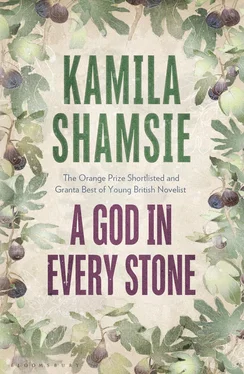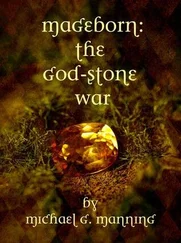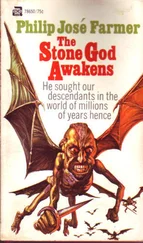From the moment he said ‘war in Europe’ — everyone there had enough Turkish to understand the phrase — Gretel and Viv had taken each other’s hands, and now Wilhelm took the letter from the Turkish man and gave it to Viv, his fingers touching hers lightly.
The message, from the Embassy in Constantinople, was brief. Her father was worried about her. She must contact the Embassy immediately and arrangements would be made to get her home safely.
After that everything moved too quickly. A telephone was found, the Ambassador himself spoke to her and said it was a stroke of luck, a ferry was on its way to where she was with an English couple on board who were returning home via the sea route. They knew about her — every English person in Constantinople had been worrying about her — and would be only too happy to accompany her home, so she must wait at the terminus and make herself known to them.
— But surely there isn’t such a great hurry?
— Miss Spencer, you should have left a long time ago. I’ll telegram your father immediately — he has been more worried than I think you can understand.
There was no time for proper goodbyes, no time to accept what was happening. The Germans said they shouldn’t be with her when the English couple arrived, it would only create discomfort. Gretel embraced her, Wilhelm shook her hand vigorously, and then they were gone, and she was standing on a dock with Tahsin Bey, watching a ferry approach. When she stepped close to him, he moved away, holding up his hand in a rejection of whatever it was she intended.
— They may already be able to see us, he said, gesturing to the ferry which was moving too quickly towards the dock.
— You’ll still come for Christmas, won’t you?
— Of course. This will all be over by then.
— But if Turkey does join the war, which side will she join?
— That crazy Enver will want to side with the Germans, but I’m not sure about the others.
— It won’t matter. I mean, to me. It won’t change anything.
— Perhaps nothing will change, perhaps everything will. This sick man of Europe — a war may be the thing that kills him finally.
— I don’t understand.
— All empires end. The Ottomans have been on their deathbed long enough.
— Oh! How terrible.
— Terrible? Why?
— For you, I mean. To contemplate that.
He raised himself up on his toes as he did when turning an important thought in his head, hands clasped behind his back. She wondered if he were trying to keep himself from touching her; she wanted to place her hand on his arm, grip the muscled forearm beneath the sleeve, and feel herself anchored.
— Did you know Nergiz and I are related?
— Nergiz the cook?
— Yes. Distantly. From my mother’s side. Do you understand what that means?
He was trying to explain something to her about class, or social status. A scandal, a taint on the family name which he thought she might care about. She didn’t know whether she was touched or offended.
— It doesn’t matter, she said.
— It matters very deeply. My grandmother’s people are Armenian. To my brothers, this is an irrelevance. But from the time I was a child, I’ve loved that part of my family most. The Bodrum relatives, the family home in Caria. And when I was a young man at university in France the Ottoman Empire’s first socialist party was founded — an Armenian party, with independence from the Ottomans as its goal. For the first time I could stop feeling ashamed around the French students who compared their tradition of revolution to my despotic empire. Though even then I understood the world well enough to hold these loyalties in my heart, not on my tongue.
— That’s why Mehmet made me stop you talking about Scylax.
— Yes. I knew that was what had happened. Scylax the seafarer who was sent on the greatest of adventures by the Persians, just as I was given permission to excavate the most astonishing site by the Ottoman authorities. We take from the Empire what it has to give — but in the end, our loyalties are with the people we loved first, love most deeply. As Scylax ended his days writing a heroic account of the Carian rebel prince Heraclides, so one day I’ll write of my Armenian cousins, the ones braver than me who lived their life in rebellion regardless of the cost.
— You mustn’t speak like this.
— I’ve never said any of it before. Only to you.
He unclasped his hands, touched her for the second time at the jut of her wrist bone, and her pulse leapt as though the touch had travelled all the way through bone and into her blood. Then he clasped his hands again, stepped even further away, and said nothing else.
The ferry docked; an elderly English couple was among the first to disembark; they greeted Viv as though she were their long-lost daughter.
Thank you, we’ll take care of her from here, the Englishman said to Tahsin Bey when Viv introduced them. The suspicion in his voice was unmistakable, and it was for this reason that Viv went up on her toes to kiss Tahsin Bey’s cheek. He didn’t embrace her in return, but instead whispered in her ear — a promise, a proposition, a caution:
— When the war ends, Vivian Rose.
— And then Tahsin Bey said, in this place every gift horse is a Trojan horse.
The young soldier threw his head back and laughed, slapping his hand down on the blanket in the place where his right thigh should have been. Viv’s old schoolfriend and fellow VAD nurse, Mary, caught Viv by the elbow and said, Nurse! There’s work to be done.
The soldier, six months earlier a student of Classics at Oxford, touched Viv’s hand.
— That was the first laugh since they took my leg. Come back and tell me more about Troy if you have a minute?
Viv smiled back — kind but distant, in the manner she’d rehearsed until it had met with Mary’s approval — and followed her friend to the door leading out of the ward, where she turned and gave the soldier another smile, a promise in it that she would return, before continuing on to the kitchen.
— You’re worse than Matron, Mary. Narse! There’s work to be done. Narse!
Mary, as sleek and imperious as ever, even ten hours into a twelve-hour shift, didn’t say a word until the kitchen door was closed behind them. You wash, I’ll dry, she said, with a gesture towards the piles of dirty mugs in the sink. Viv took off one shoe, raised it above her head and turned the tap as far as it would go with a quick twist of her wrist. The gush of water threw the beetles in the sink into panic. Darting here and there, they upturned mugs and milk jugs, fleeing the deluge. Viv and Mary, practised now, smashed the shining dark bodies while balancing on one foot.
— Prison life probably seems a luxury after this, Viv said, bending to put her shoe back on when the scurrying had ceased.
— Well, the headwear here is nicer, Mary replied, indicating the white hat on her own head. In prison, they make you wear bonnets. Actual bonnets. With a bow tied beneath your chin.
Viv tried to picture it, laughed disbelievingly, and scooped a floating, upturned beetle out of the rapidly filling sink before rolling up her sleeves and turning her attention to the mugs. It still didn’t entirely make sense to her that Mary had transformed so rapidly and completely from the suffragette who smashed windows, to this zealous supporter of the war who had taken Viv off to the Red Cross to start her VAD training the day she returned from Turkey, but it was a relief to find that they were no longer staring at each other in bafflement from either side of the Votes for Women question.
She looked out of the window over the sink; the lowered skies, the greyness of London. Not yet 5 p.m. and already the sun had given up any pretence that it would play a part in the day. She sighed, thinking of the Labraunda evenings, and the sound was met with clicking-tongued disapproval from Mary.
Читать дальше












